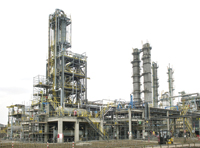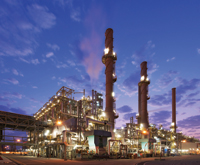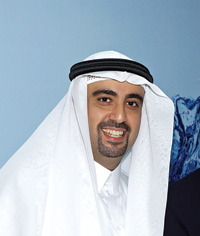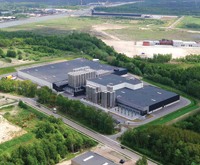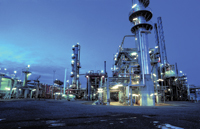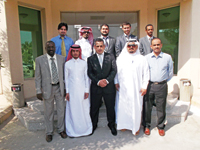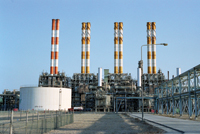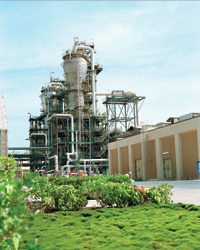
.jpg) WFES ... a premier event
WFES ... a premier event
A few years ago, it was almost inconceivable that the oil and gas sector could sit side-by-side with renewable energy sources such as solar-photovoltaic (PV), solar thermal, hydro and wind power.
However, a surge in energy consumption in recent times has not only seen conventional and renewable sources cozy up but they have become active global partners in the search for solutions to the challenges of energy supply, particularly in the Middle East with its burgeoning population, greater urbanisation and growing industrialisation.
The Gulf Research Centre, in its 2012 report on renewable energy in GCC countries, revealed that the demand for electricity in the region has almost doubled over the last decade and it is estimated to grow by around eight per cent per annum for the foreseeable future.
Given that the generation of electricity and heat is responsible for up to 50 per cent of carbon emissions, it is little wonder that the energy sector is taking a responsible approach to power production, including diversification into renewable sources, to meet the rampaging demand and ensure environmental sustainability.
International gatherings such as the World Future Energy Summit (WFES) in Abu Dhabi have encouraged increasing collaboration between the conventional and renewable energy sectors by bringing together world leaders, government delegations, policy makers and industry representatives. Further alliances are highly anticipated during the sixth WFES from January 15 to 17, 2013.
Naji El Haddad, show director for the WFES, has witnessed growing participation in the summit from the world’s leading oil and gas companies over the years.
'For our first summit in 2008, there were a handful of what we would consider to be conventional energy companies, those directly involved in the oil and gas sector', says El Haddad.
'Contrast this with next year’s event, and the increase in participation is marked. We are seeing more and more of the energy giants keenly contributing to the advancement of renewable energy and energy efficiency, and we know they will be eyeing WFES 2013 to find solutions to the world’s insatiable thirst for energy, such as integration into smart grids,' he adds.
'Global companies such as Total, Exxon, Occidental, Statoil, Sky Fuel and Shell and regional leaders like Adnoc, Dolphin Energy and Qatar Petroleum have all confirmed their participation at WFES 2013, which is ample proof of the commitment of these companies,' El Haddad says.
The Renewables 2012 Global Status Report by REN21, the Renewable Energy Policy Network for the 21st Century, states that renewable energy sources have grown to supply an estimated 16.7 per cent of global final energy consumption in 2010. It further shows that new investment in renewables in 2011 around the world was $257 billion, an increase of 17 per cent over 2010. Middle East nations are forecast to spend close to $20 billion in the near term on renewable energy projects in order to diversify conventional power generation.
El Haddad believes that WFES 2013 will highlight the role of existing energy companies in scaling up the intake of more renewable energy and emphasise the energy transformation that is changing the way existing energy companies are doing business.
'A number of sessions at WFES 2013 will address this issue, and we will hear many encouraging examples of new business models centred on renewable energy. There will also be intense discussions about the types of policy or regulatory support mechanisms that could help energy companies proactively lead the transition to renewable energy,' he says.
'We will also learn how far oil companies will go into the bio-fuels and electric mobility sectors, and what the potential for fossil-renewable hybrids is. Supporting this process of integration is a key objective of the WFES,' he adds.
The 2013 WFES, hosted by Masdar, Abu Dhabi’s multi-faceted renewable energy company, is now considered the world’s foremost event for the renewable energy and environment industry.







































































